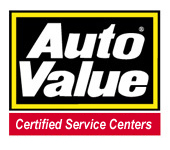
Archive for July 2022Too Hot to Handle (Vehicle Overheating)Posted July 24, 2022 12:14 PMIn the hot weather, seeing steam coming from the engine compartment is something we all dread. No one wants that to happen to them. But if you know the signs of overheating and how to deal with it, you may be able to reduce the risk of damage to your vehicle, maybe even prevent getting stranded on the road. Besides the steam coming out of the engine compartment, here are a few signs of overheating. Your vehicle has a heat gauge that may have a needle that can go into a red zone or up to the "H" (for High) position. You may smell odors, perhaps a burning (could be hot oil) or a sweet smell (engine coolant leaking). When you encounter any of those signs, you know you have to do something to keep the engine as cool as possible to avoid potentially catastrophic damage. Turn off the air conditioning and turn up the heat. While that last part may sound odd, it helps draw heat out of the engine. If you can do it safely, pull off the road to a spot away from traffic. Turn off the engine so it can cool down for a few minutes. You may want to call for help at this point, then switch on the key to "accessory" position to see if the engine has cooled down to the normal range. You may have to have your car towed to a service facility or, if there's one nearby, you may be able to slowly drive to it. But keep your eye on the heat gauge and immediately stop if it starts to overheat again. The best hedge against engine overheating is regular maintenance. When the cooling system and other engine components are working like they should, your chances of an overheated engine are drastically reduced. Your service facility will keep their eyes open for leaking hoses, cracked belts, rusted pipes and other things so they don't fail at the most inopportune time. Brake World Gas Smell! (What Causes Gasoline Odors)Posted July 10, 2022 9:06 AMIf you've ever walked into your garage and noticed it smelled like gasoline, pay attention. Gasoline can be dangerous, both from the health problems fumes can cause and the fire danger gasoline presents. There are many things that can cause a vehicle to give off a gasoline odor. One of the easiest to track down is the gas cap. It could be missing or it doesn't seal well any more (they do wear out). That can also cause the Check Engine light to light up, so those are clues to tell your service advisor when you take it in for diagnosis. Another thing that can cause the Check Engine light to come on and produce a gasoline smell is the fuel filler neck. It's the part that goes from the place you put your fuel in to the gas tank. Over time, these can wear out and fail (they're made out of rubber or metal). They can leak gasoline, too. It's always a good idea to check the garage floor for any gasoline puddles. Note the location of the puddle in relation to the vehicle. If it's near the back, that's possibly the fuel filler neck or the gas tank leaking. In the middle of the vehicle? May be fuel lines. Near the front? Could be fuel injectors (or carburetor if you have one) or fuel pump. There are other causes of gas odors, and you need an expert to figure out the source soon. Gasoline leaks are nothing to play around with. Gasoline is flammable, potentially explosive and its fumes can damage your lungs. A trained technician can pinpoint the cause and get your garage back to smelling like a normal garage again. Brake World Motor Oil?The Synthetic Advantage (Synthetic oil vs Conventional)Posted July 3, 2022 10:54 AMYou’ve probably already heard that regular oil changes are extremely important for the health of your vehicle’s engine. That’s sound advice. But what you might not know is when it comes to motor oil, the real thing may not be the best thing for your engine. There are different types of motor oil:
The first thing you need to know is that most new engines require synthetic oil. If synthetic oil is recommended for your car – you MUST use it. For the rest, there are many advantages to using synthetic oil over conventional oil.
Synthetic oil can be a better choice if you live in an extremely hot or cold climate or put a lot of strain on your engine by towing or carrying heavy loads. It also may be good for older engines that sometimes have a tendency to develop sludge. Synthetic oil is a more expensive option, but you likely won’t have to have your oil changed as often. Some synthetics are recommended to last 10,000-15,000 miles/16,000-24,000 km between changes. You might also consider a synthetic blend that gives you some of the advantages of synthetic oil at a lower cost. Have a talk with your service adviser about recommendations for what will best suit your vehicle and driving habits. It’s interesting to note that in recent years, more than one out of two vehicle owners are opting for synthetic oil or a synthetic blend when they get their oil changed. Sounds like they’re on to something. In the long run, if you have fewer oil changes with synthetics, you’ll use less oil, a bonus for our environment. Brake World | ||
SearchArchiveNovember 2018 (16)December 2018 (5) January 2019 (5) February 2019 (4) March 2019 (5) April 2019 (4) May 2019 (4) June 2019 (5) July 2019 (4) August 2019 (4) September 2019 (5) October 2019 (4) November 2019 (4) December 2019 (5) January 2020 (5) February 2020 (4) March 2020 (5) April 2020 (4) May 2020 (5) June 2020 (4) July 2020 (4) August 2020 (5) September 2020 (4) October 2020 (4) November 2020 (5) December 2020 (4) January 2021 (6) February 2021 (4) March 2021 (4) April 2021 (4) May 2021 (5) June 2021 (4) July 2021 (4) August 2021 (5) September 2021 (4) October 2021 (5) November 2021 (4) December 2021 (4) January 2022 (6) February 2022 (4) March 2022 (4) April 2022 (4) May 2022 (5) June 2022 (4) July 2022 (5) August 2022 (4) September 2022 (4) October 2022 (5) November 2022 (4) December 2022 (4) January 2023 (5) February 2023 (4) March 2023 (4) April 2023 (5) May 2023 (4) June 2023 (4) July 2023 (5) August 2023 (4) September 2023 (4) October 2023 (5) November 2023 (4) December 2023 (5) January 2024 (5) February 2024 (4) March 2024 (5) April 2024 (4) May 2024 (4) June 2024 (5) July 2024 (4) August 2024 (4) September 2024 (5) October 2024 (4) November 2024 (4) December 2024 (5) January 2025 (4) February 2025 (4) March 2025 (4) | CategoriesFuel Economy (6)Maintenance (8)Brakes (10)Timing Belt (2)Fluids (5)Battery (9)Headlamps (3)Alternator (4)What Customers Should Know (44)Cooling System (5)Service Standards (3)Customer Detective Work (1)Check Engine Light (2)Service Intervals (1)Exhaust (3)Fuel Saving Tip: Slow Down (1)Suspension (1)Shocks & Struts (2)Alignment (3)Winter Prep (2)Oil Change (5)Tires (7)Windshield Wipers (1)Safety (2)Air Conditioning (5)Automotive News (2)Older Vehicles (1)Drive Train (2)Wheel Bearings (1)Steering (3)Cabin Air Filter (1)Transmission (1)Tire Rotation and Balancing (2)TPMS (2)Brake Service (3)Auto Safety (1)Keys to a long lasting vehicle (1)Safe Driving (1)Shocks and Struts (2)Fuel System (1)Tires and Wheels (1)Transfer Case Service (1)Dashboard (1)Inspection (2) | |
What our clients are saying about us
We have established longterm and stable partnerships with various clients thanks to our excellence in solving their automotive needs!
I was able to come off the street and get an oil change without an appointment. Very impressed with the service and quick turn-around time. I will definitely come back for future oil changes.
I went to there today, without an appointment, they took me right in immediately. I also told them that the pump for my window washer was not functioning, and he said he would check it out as well. They did the oil change, replace the oil filter, and the mechanic spent about a half hour under the hood, exposing the tubing that had been broken, and repaired it. The final bill was $39.39, no charge to repair the hose for the windshield wiper. Fantastic and prompt service. I will go to them from now on and recommend them to others!













